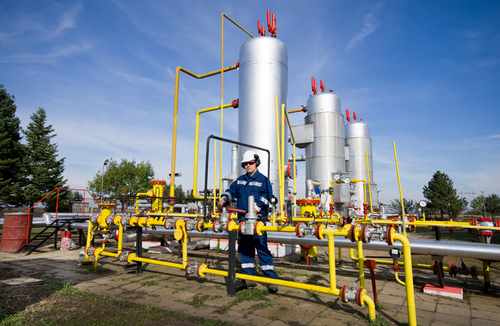
Pennsylvania lawmakers joined a nationwide call this month to allow the state’s oil and gas industry to use federal coronavirus (COVID-19) assistance to help with looming loan payments as well as maintaining their current payrolls.
Led by U.S. Rep. Guy Reschenthaler (R-PA), a dozen members of Congress representing Pennsylvania, West Virginia and Ohio sent an April 16 letter to the Trump Administration asking for a tweak to the Main Street Lending Program to allow energy companies to tap into the program to assist with the debt servicing that drives the bountiful production in the Marcellus Shale region. That debt has become a steeper hill to climb this spring as the COVID-19 lockdown combined with a stretch of bearish fundamentals to keep a lid on prices.
“Unfortunately, for many Appalachian natural gas companies, the Main Street Lending Program as currently structured will not be beneficial because of the limitation on using loan funding to repay debt,” said the letter addressed to U.S. Treasury Secretary Steven Mnuchin and Federal Reserve Chairman Jerome Powell. “Many producers will have debts come due before this health crisis is expected to subside. These companies would have been able to pay their debt obligations out of normal cash flows if not for the virus.”
The Pennsylvania delegation reached out to Mnuchin and Powell on the same day that the latest unemployment figures showed the jobless rate had jumped in March to 6 percent as COVID-19 triggered an unprecedented shutdown of the economy and harrowing loss of jobs that will likely make the April unemployment report an occasion for a stiff drink.
The Main Street Lending Program was passed by Congress and then signed by the president in relatively short order with the goal of saving as many jobs as possible; however, the program’s requirements prohibit the recipients from using the money to pay down or refinance their outstanding loans.
The industry, though, in these trying times, contends that allowing these leveraged companies to make their loan payments would better enable them to continue operations instead of going under and dragging those jobs down with them permanently.
The Independent Petroleum Association of America (IPPA) said in an April 15 letter to Powell: “IPAA would also suggest that this flexibility can be a force multiplier throughout the economy, limiting the number of defaults that debt holders experience on those debts coming due. This can only be helpful in containing the negative economic impact of the COVID-19 crisis.”
The finer points of debt service in the nationwide oil patch has also caught the eye of the U.S. Senate. A dozen senators from Texas, Alaska, Mississippi, and other oil and gas producing states asked the administration to make a key change to the credit requirements for obtaining federal loans to the oil and gas sector.
The loans currently are based on an individual company’s credit rating as of March 22, which the lawmakers pointed out was about the time the entire industry was being sullied by plummeting prices and evaporating demand. The senators proposed changing the date to early March, when balance sheets and credit ratings were in better condition than they were when they limped into April.
“Not only were businesses and financial markets already reeling from the COVID-19 pandemic before March 22, but oil and gas companies were impacted with increased financial pressure following a March 6, 2020, OPEC+ meeting where production cuts in response to COVID-19 failed to materialize,” the letter said, adding, “These actions substantially shook energy producers, impacting their bottom line more than two weeks before March 22.”
“Our energy producers should not be unfairly excluded from credit due to an arbitrary date, and their viability should be protected with enhanced support for their credit and access to capital,” the letter said. “Assisting these companies could be the difference between maintaining our domestic energy production and workforce, or shedding more U.S. jobs and returning to dependence on foreign sources of oil.”